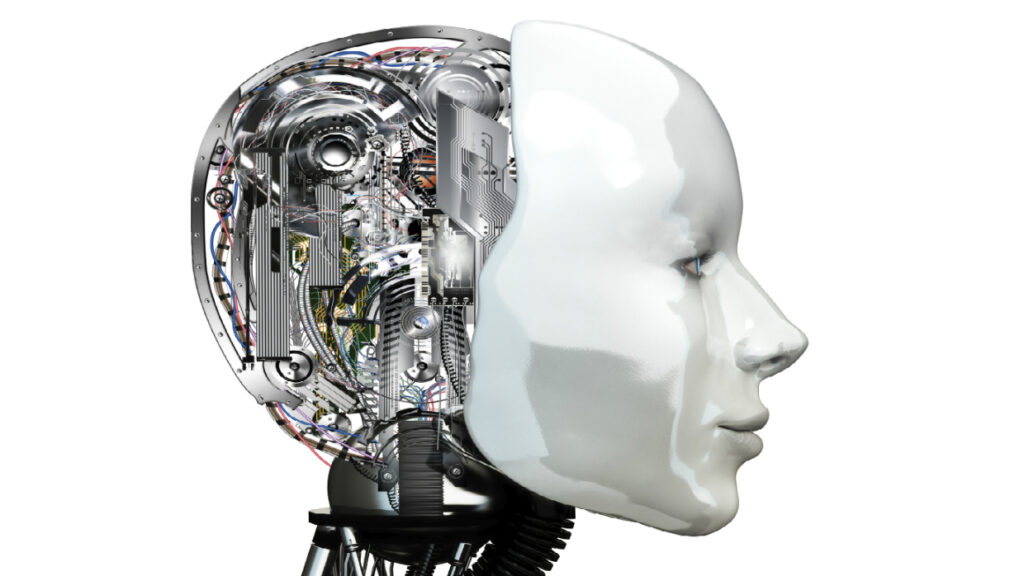Forget Arnold Schwarzenegger and Lance Henriksen; Neil Bentley talks about the positive side of AI.
It’s perhaps not surprising that a recent TV drama about robots was called ‘Humans’. As people, one of the more thought-provoking aspects of current and future technology is the implications that robotics has for us, particularly as more sophisticated robots become increasingly capable of doing the things we currently do.
As a drama, 'Humans' went further than current possibilities and focused on potential blurring of the line between robots and humans, particularly as some robots in it are programmed to have consciousness. But what about the current reality? In a world where robots – or more precisely Robotic Process Automation (RPA) – is already a reality, what are the implications for humans?
One thing that we see in many of the sci-fi dramas – from Humans to Blade Runner, Ex Machina and many others – is that, whatever else the future holds, people are still people. They have hopes and fears, deal in emotions and politics, greed, envy and lust. Or pretty much a normal day at the office.
As managers in a world where RPA is with us and growing, this is what we must think about. In the future there will still be people. Lots of people. In many ways, the management of the people will become even more important.
The rise of human issues in a world with robotics
RPA will, at first, replace much of the mundane and simple work in the front and back office. Work where people are doing little more than transcribing data from one system to another, pushing keys and working on programmable, repetitive work. This will cost jobs but it will also change the work for those who remain. The profile of the work currently done by people is likely to shift towards the more complex. With it, there will be a reducing pool of well-trained, skilled and articulate employees who can handle exceptions, challenging customers and unpredictable situations. This may in turn lead to increasing employee power and average pay may well increase too.
So what are the implications for management in operations?
- Rethinking Workforce Management (WFM). A lot of WFM technologies are based on high functionality software that gives 19th century Time and Motion a modern twist. Clearly this approach, sometimes referred to as 'mechanistic management', is unlikely to survive when we have real machines doing the easy stuff and a more powerful and articulate workforce that expects better than to be just numbers in an equation. WFM and workforce optimisation are likely to be phased out and replaced by operations performance management where numerically-based capacity management and people-based performance management are blended into a new management paradigm.
- A return to Systems Thinking. Past management geniuses like W E Deming and Peter Senge who help us to see that organisations are like systems (think eco-systems or weather systems) will come back into fashion. Indeed, this already appears to be happening already as managers realise that organisational performance is a result of a whole set of complex interaction between many moving parts. As such, introducing RPA into this system will have wide reaching and sometimes unpredictable consequences. The most successful exploitations of RPA will therefore be in organisations that have understood and paid attention to the whole system.
- Greater emphasis on Wellbeing. As part of this system understanding, organisations will realise that the cost to the whole system of poorly managed employees is prohibitively large – be that the cost of sick absence or the cost of serial recruitment as a result of high labour turnover. As organisations have fewer, more skilled people, looking after them well will become a priority.
Ultimately, from a human perspective, it’s clear to see that the rise in robotics will bring more interesting and challenging work for people. The people most capable of doing this work will become very important to the organisations they work for and, as a result, those organisations will have to pay even greater attention to the human aspects of work. The people they employ will not, after all, want to be treated like robots.
Neil Bentley is chief knowledge officer at ActiveOps. He has been helping organisations to improve their front-line operating performance for over 20 years. Originally qualified in psychology, he worked for Lucas Industries in the 80s, gaining experience in manufacturing production management, before focusing on financial services and the public sector. He launched ActiveOps with fellow OCP partner Richard Jeffery in 2005









